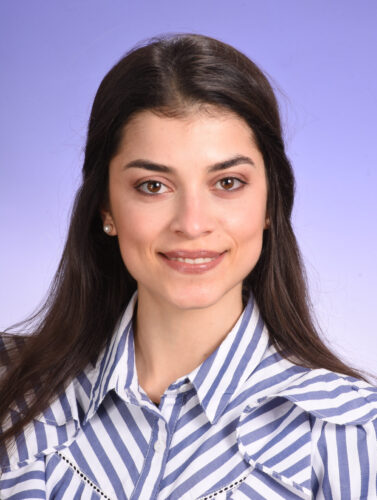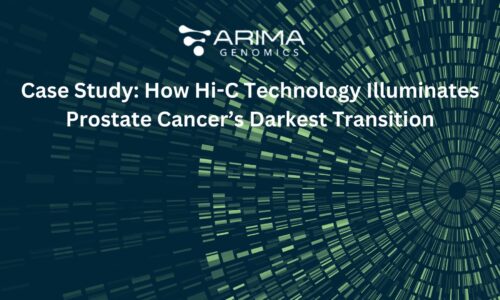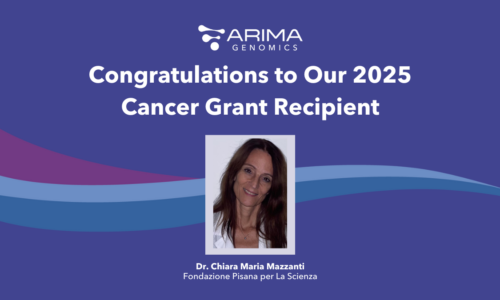November 20, 2025
Share
We are excited to announce the recipient of our inaugural 2025 Open Grant – a program designed to support the most innovative research expanding the frontiers of genomics. Unlike our previous grants, this new initiative was open to proposals from all fields of genomics, welcoming pioneering ideas in genome assembly, single-cell analysis, structural variant detection, epigenetics, and human health and disease. After careful review of highly competitive entries representing diverse scientific areas, one proposal stood out for its ambition and transformative potential.
Grant Recipient: Varvara-Rigina Louma
Lab: The Henssen Lab, led by Dr. Anton Henssen

Varvara-Rigina Louma and the Henssen Lab receive the inaugural 2025 Arima Open Grant for pioneering research on ecDNA reintegration and chromatin architecture in cancer
Institution: Experimental and Clinical Research Center (ECRC), a joint institute of the Max Delbrück Center and Charité – Universitätsmedizin Berlin
Project Title: Decoding the Impact of ecDNA Reintegration on Chromatin Architecture and Oncogene Regulation in Cancer
Project Overview: Extrachromosomal DNA (ecDNA) drives oncogene amplification and cancer progression through its circular, dynamic structure. Unlike chromosomal DNA, ecDNAs are acentric, highly accessible, and frequently harbor oncogenes with regulatory elements enabling robust transcription. Importantly, ecDNA is often associated with poor disease outcome and therapy resistance. ecDNAs can reintegrate into chromosomes, forming homogeneously staining regions (HSRs), but how this reintegration reshapes 3D chromatin architecture and gene regulation remains unclear.
This project will investigate how ecDNA reintegration alters chromatin topology and oncogene expression, focusing on amplicon biology. The Hensenn Lab’s model comprises methotrexate-resistant HeLa clones representing distinct stages of DHFR amplification and ecDNA reintegration. A key objective is to analyze chromatin architecture pre- and post-ecDNA integration. The lab will integrate 3D genomics (Arima Hi-C), transcriptomics (RNA-seq), and epigenomics (ChIP/ATAC-seq) to compare ecDNA-positive cancer cell lines with HSR-containing derivatives. By mapping changes in topologically associating domains (TADs), chromatin loops, and enhancer-oncogene interactions, the lab aims to uncover how reintegration rewires gene control.
Since reintegration sites are challenging to resolve, their lab will employ Arima’s genome-wide Hi-C and FFPE-compatible kits for high-resolution detection of long-range chromatin contacts, structural variants, and amplicon remodeling. The Arima Hi-C kits and FFPE reagents will generate comprehensive 3D maps of ecDNA integration, providing novel insights into genome plasticity and oncogene regulation in therapy-resistant cancers.
About the Henssen Lab: The Henssen Lab, led by Dr. Anton Henssen, investigates how genomic instability and oncogene amplification, particularly through extrachromosomal DNA (ecDNA), drive some of the most lethal pediatric cancers, including neuroblastoma, rhabdomyosarcoma, and rhabdoid tumors. EcDNA is strongly associated with aggressive disease, poor patient outcomes, and rapid tumor evolution. A major focus of the lab is uncovering how ecDNA forms, reintegrates into chromosomes, and reshapes chromatin architecture to promote oncogene overexpression and therapy resistance. Using high-throughput DNA, RNA, and ChIP sequencing, alongside chromatin conformation and computational genomics, the lab studies mechanisms of genomic plasticity and identifies actionable vulnerabilities. The ultimate goal is to translate these insights into personalized treatment strategies for children with refractory cancers.

We congratulate Varvara-Rigina Louma and the Henssen Lab for their outstanding proposal and look forward to the discoveries this project will bring!
Thank you to all who applied, and to every investigator working to advance human knowledge and health through genomic innovation. Stay tuned for future grant opportunities and updates on how our technologies enable you to accelerate discovery.



